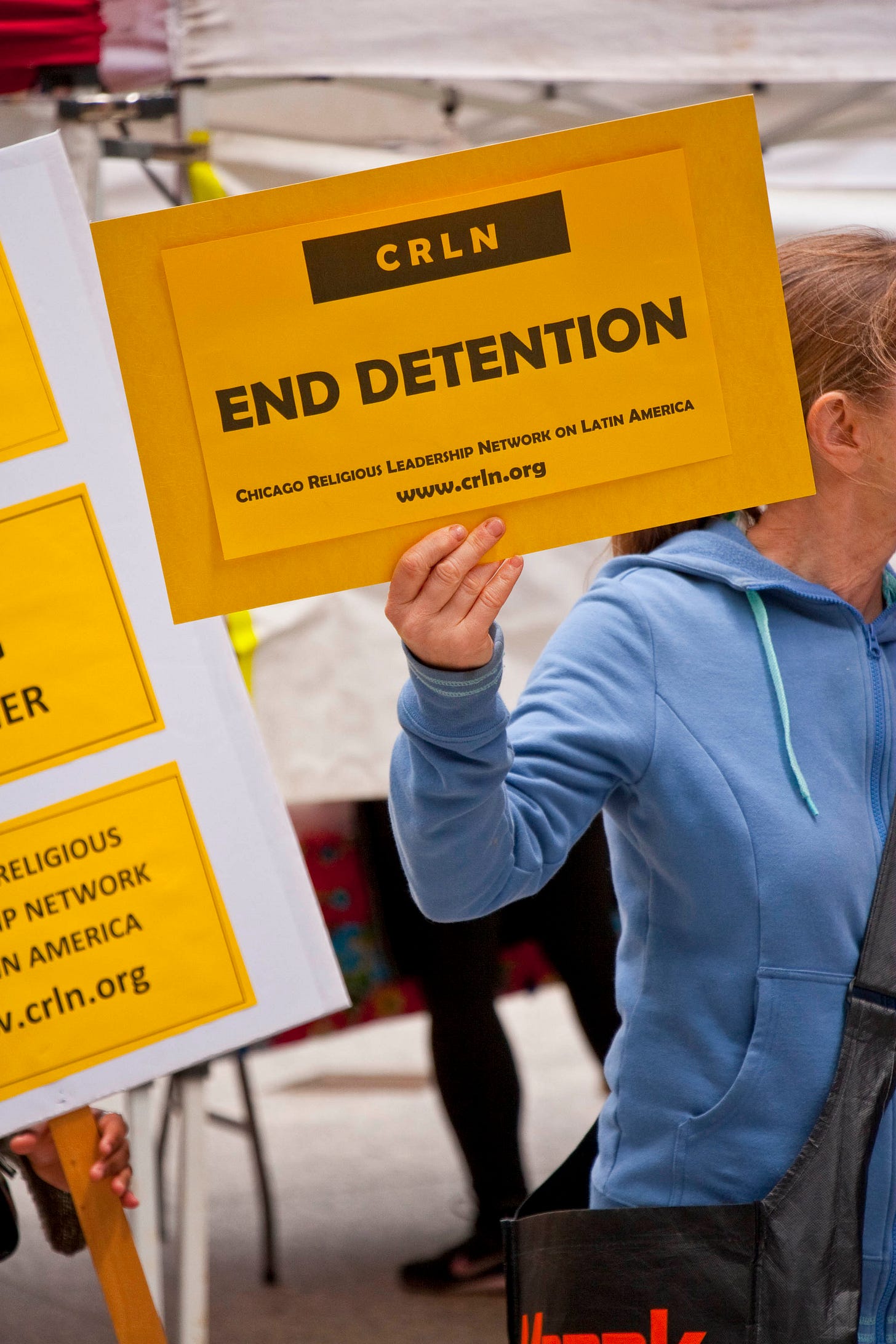Stop imprisoning immigrants merely for being immigrants
Our current system is expensive and ineffective. Let's do better.

I pledge allegiance to the flag of the United States of America, and to the republic for which it stands, one nation under God, indivisible, with liberty and justice for all.
We grew up reciting the Pledge of Allegiance every morning in school. We stood, placed our hands over our hearts, looked to the flag in the corner, and considered the meaning of that symbol: liberty and justice for all.
We believe in the strong moral center of the United States: we the people formed this union believing that all people are created equal and with certain inalienable rights. As Americans, we aspire to those ideals; where we fail, we can and must do better.
Recently we wrote about how the overuse of prisons as a “solution” to crime violates these core American principles. Using prisons to enforce immigration law is no better.
Our nation’s history with immigrants is checkered. Some, like our ancestors, were greeted by land grants, homesteading options, and communities that spoke their native language. Others came in chains or were met by hostility, mobs, or worse.
In the 1950s, after the particularly egregious example of concentration camps for Japanese-Americans, the Eisenhower administration closed almost all immigrant detention facilities, including Ellis Island. The U.S. Supreme Court later hailed this as the act of an “enlightened civilization.” It appeared that immigration prisons would soon be relics of the past.
Not so. Starting during the Clinton administration, the U.S. made imprisonment its primary tool for addressing immigration violations. The Bush and Obama administrations further escalated detentions, and the Trump administration has added both increased imprisonment and a deliberate policy of making imprisonment inhumane.
Today, our immigration prisons hold more than five times as many people as they did in 1994. Adults and children alike are held in private for-profit prisons, in reprehensible conditions without critical or routine medical care, leading to the deaths of children and adults. The trauma of imprisonment is well documented, particularly for children, the cost is exorbitant, and the risks include incorrectly arresting or even deporting American citizens. It’s shameful to see our country deservedly receive the censure of the UN Human Rights Commissioner for this cruelty.
This appalling waste of life and money does not address any real problems. Seeking asylum is legal, immigrants commit fewer crimes than native-born citizens, illegal immigration levels are a fraction of what they were in the early 2000s, and immigrating without proper documentation is a misdemeanor — like defacing currency.
Moreover, cheap and effective solutions exist for many immigration cases. Increased monitoring and caseworker support has historically performed extremely well, with between 95 and 99% compliance, has reduced trauma, and costs a paltry few dollars a day per person instead of hundreds. Put differently, in many cases 93-97 cents of every dollar we spend on immigration detention solves no problem.
This system doesn’t exist for necessity or because of incompetence, but for nakedly political reasons: previous Democratic administrations wished to appear “tough on crime”, and the Trump administration acts for blatantly nativist and racist reasons. (Anyone who wishes to dispute the last should remember that the President has an extensive history of racist immigration positions and rhetoric, has publicly and privately called to make immigration less humane, used nativist positions to win the Republican primary, and has a senior adviser on immigration with a history of promoting white nationalism.)
It’s long since time that we stop letting politicians not just implement pointlessly cruel policies but win votes for doing so. Our immigration system needs many reforms before we can consider it to reflect our values of “liberty and justice for all,” but every journey starts with a single step. Let’s stop imprisoning immigrants merely for being immigrants; embrace cheap, effective, and humane enforcement; and consider, as Secretary Julián Castro has called upon us to, whether securing our border is best addressed by the criminal or civil justice system.
Writers’ Group members Shannon Patrick and Kelcey Patrick-Ferree live in Iowa City.
Originally published in the Iowa City Press-Citizen on December 13, 2019.

